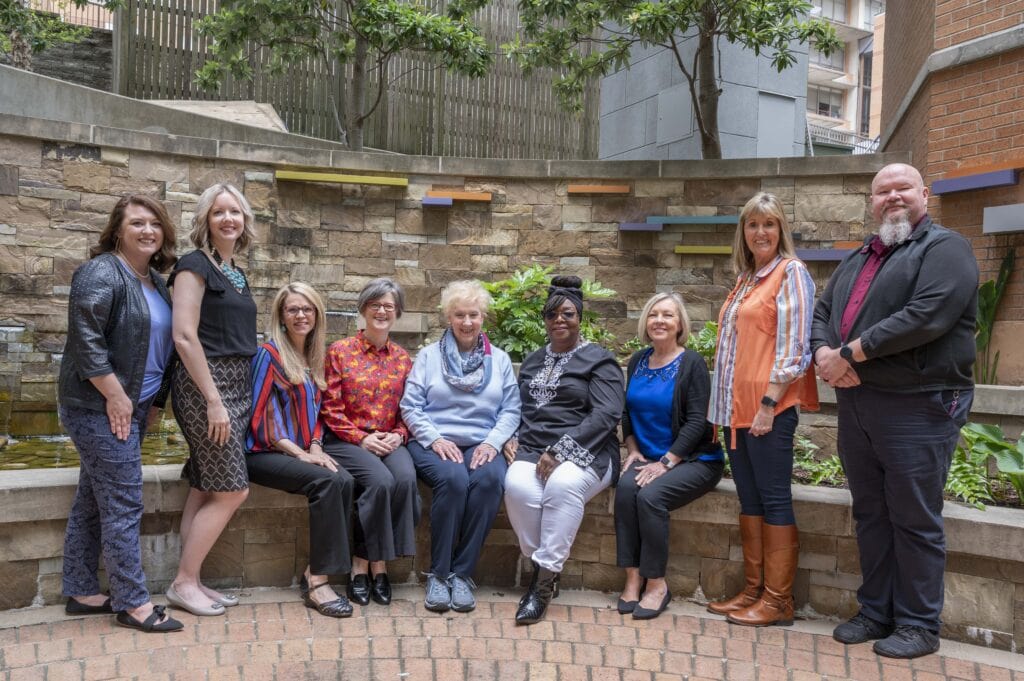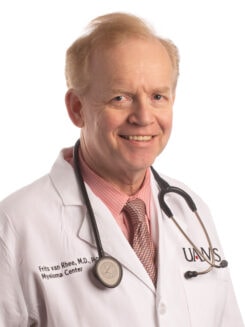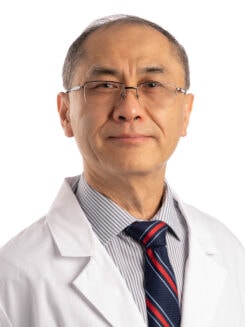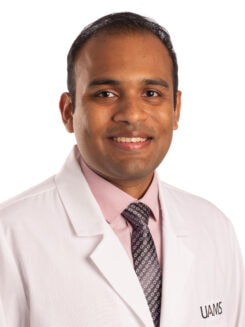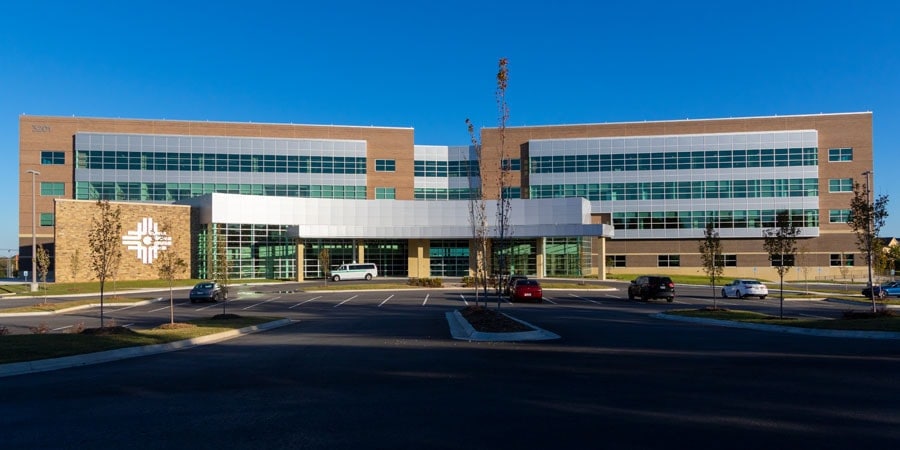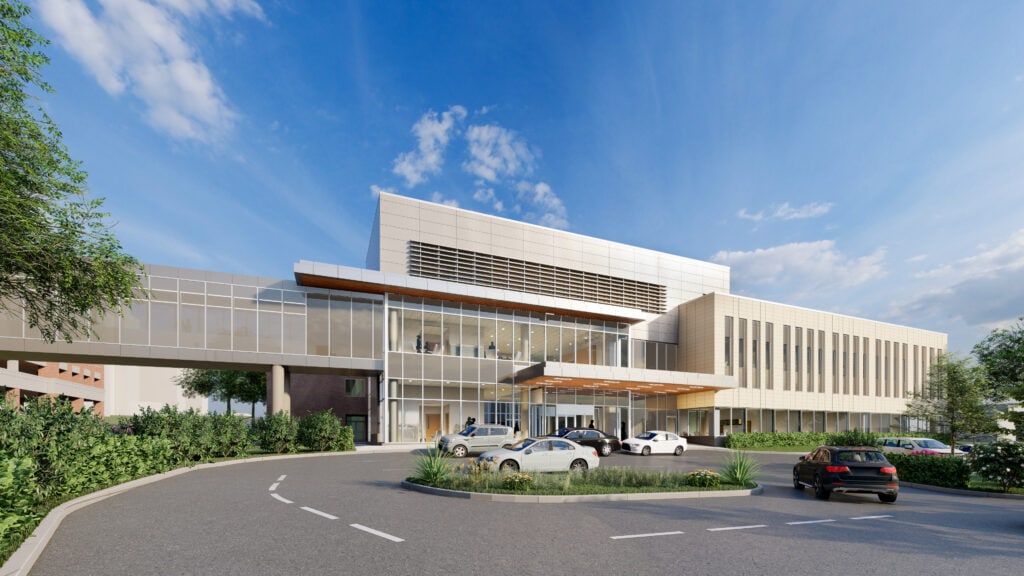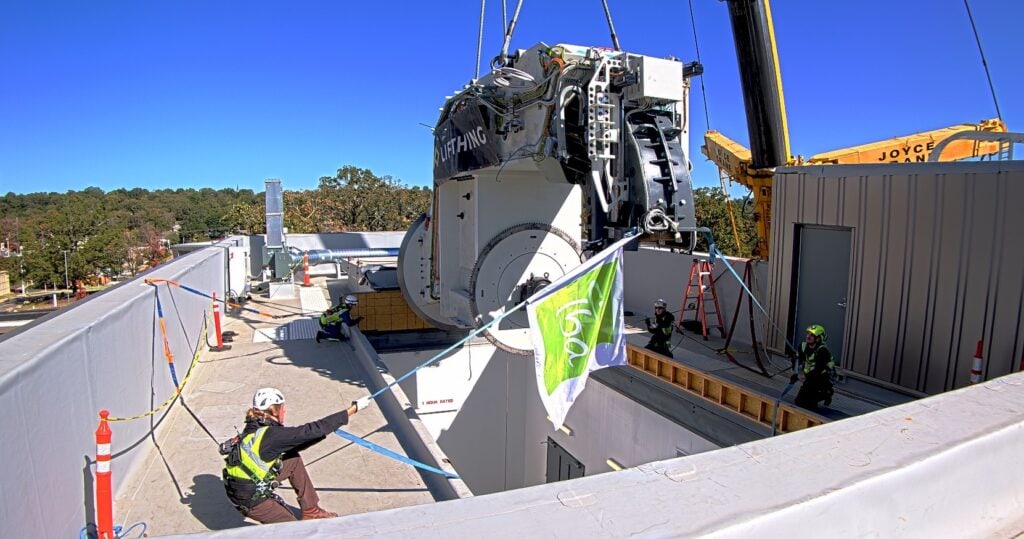Social Work Provides Essential Support to Ease the Cancer Burden

Patients and families come to the Winthrop P. Rockefeller Cancer Institute from many places, in various stages of their disease and from many different life situations. Some are dealing with a new cancer diagnosis, while others are facing an unexpected and unsettling recurrence. Some are able to handle the financial stressors of a chronic illness, but understandably, are knocked off balance emotionally. Many are also in the almost 20% of Arkansans who fall below the federal poverty guidelines — or they are in the group just over those guidelines who still experience financial struggles.
In the last 10 years, the Cancer Institute Social Work Department has focused more on addressing all of the stressors that impact patients and families — those that limit access to treatment, compliance with medical recommendations and overall quality of life.
“We are integrated into the clinic teams to raise awareness of psychosocial issues affecting the medical picture and increase the identification of patients who need services,” said Harriet Farley, social work program manager.
“We’re trained to view people within their situations, so we look at the whole person and what types of support are needed to help strengthen individuals and families going through treatment,” she said.
Some patients need housing while they are receiving ongoing treatment. Many are not able to afford the frequent trips between their homes and Little Rock for multiple medical appointments and treatments. Often, patients have limited or no insurance coverage for medications.
“Many of our patients and families were experiencing food insecurity before the cancer diagnosis hit their family. Now they have the normal family food needs and the specialized nutritional needs of the patient,” said Farley.
For patients who enter the oncology world with a financial deficit, the social work department supports these needs with assistance in local housing, transportation (gas cards, van, taxi and LYFT rides), medications and food (meal tickets and food bags). The Cancer Institute Auxiliary provides the majority of funding needed to provide this assistance through their annual grants, in addition to personal donations and grants from the American Cancer Society.
It’s common for patients and their caregivers to experience depression, anxiety and difficulties reconciling the other aspects of their lives with cancer. Social workers often provide or make referrals for mental health services that can help people navigate this challenging time in their lives.
“It can be overwhelming for patients,” said Farley. “We often serve as advocates for patients and families with the medical team to help facilitate communication and understanding in an unfamiliar territory.”
If you or someone you know could benefit from assistance, please contact Cancer Institute Social Work at 501-603-1612.
